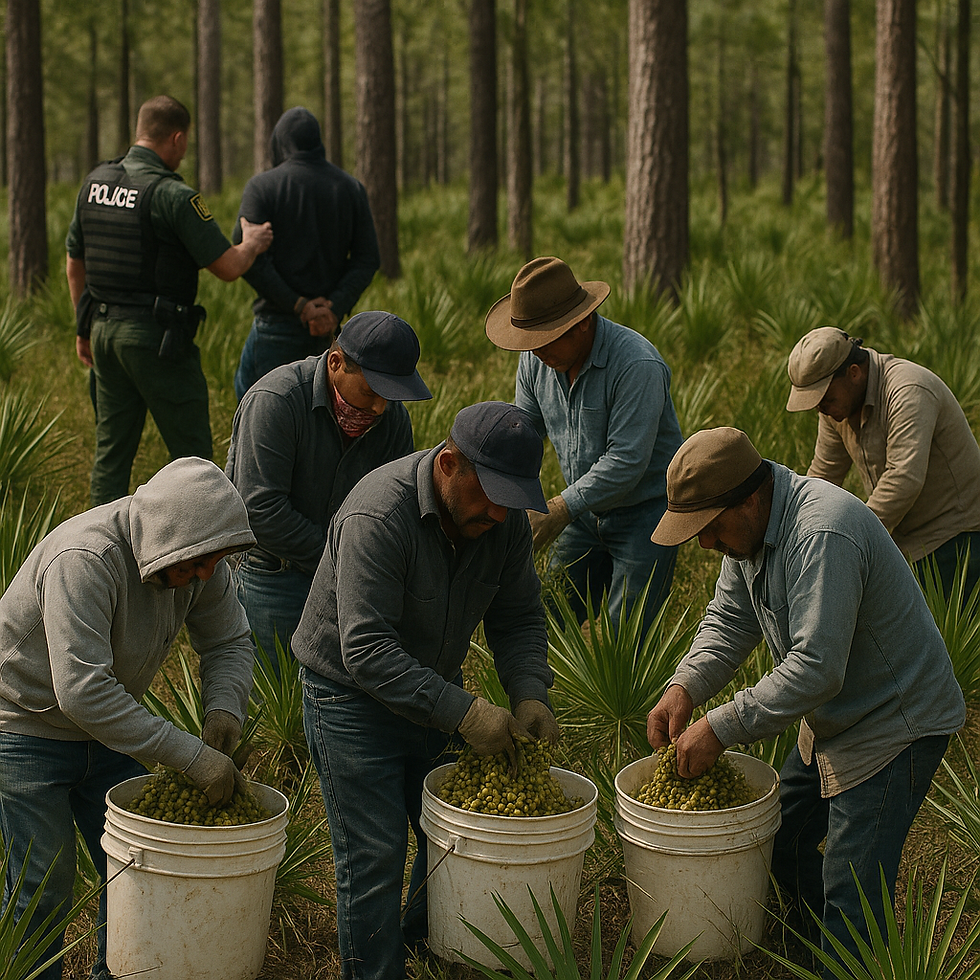How Mass Deportation Threats Are Fueling Exploitation of Mixed-Status Families
- Danika Joy Fornear

- Aug 25
- 3 min read
Updated: Aug 26
Across Florida, undocumented and mixed-status families are bearing the brunt of a crisis designed to exploit their vulnerability. As the state leans harder into mass deportation threats, the very people who keep our communities running—working in fields, kitchens, construction sites, and service jobs—are being left with fewer protections and greater risks of exploitation.
Wage Theft and Fear of Retaliation
Wage theft has long been a hidden epidemic in Florida, but for undocumented workers, it’s become nearly impossible to challenge. Construction crews report paychecks slashed without explanation. Farmworkers see hours disappear from their pay stubs. Restaurant staff are denied overtime pay. These are not isolated incidents—they are systemic practices, and employers are emboldened by the knowledge that workers cannot safely seek recourse.
The threat is always implicit: complain, and risk exposure. ICE raids, detainment, or deportation are never far from mind, and unscrupulous bosses know it.
Slumlords Exploiting Families in Hiding
Housing exploitation mirrors the workplace abuses. Families, often with U.S.-born children, are being forced to live in unsafe, overcrowded, and neglected housing. Leaking roofs, black mold, dangerous wiring, and failing plumbing are common—but tenants know that demanding repairs could invite retaliation or worse. In a climate where landlords hold the power to threaten “la migra,” many families stay silent, paying high rents for substandard housing.

Why It’s Worse Now
The current push for mass deportation policies under DeSantis and Trump has created an atmosphere of terror that reaches far beyond immigration enforcement. It functions as a silencing mechanism, making it easier for wage thieves and slumlords to operate without fear of accountability. In short: the state has manufactured conditions where exploitation not only thrives, but is rewarded.
Community Response and What You Can Do
In the absence of state protection, grassroots groups have stepped in. Organizations like Unidos Immokalee, Save Our Democracy, and local mutual-aid networks are working daily to provide food, housing assistance, legal aid, and financial support to families under attack. Volunteers have helped feed pets left behind after ICE detentions, provided rides to medical appointments, and discreetly assisted with repairs when landlords refuse.
But this kind of solidarity requires caution. Anyone offering direct support must take extreme care not to expose the families’ identities or locations. Even well-intentioned volunteers can inadvertently put people at risk of arrest or deportation. That’s why it is crucial to coordinate through trusted groups already working on the ground.
If you need help:
Reach out to Unidos Immokalee via their Facebook page .
Connect with Save Our Democracy through their site for legal and community support (you can do so anonymously)..
If you want to help:
Donate directly to Unidos Immokalee, Save Our Democracy, or other verified grassroots groups.
Volunteer your skills—whether that’s repair work, transportation, or childcare—but always through established networks to protect families’ safety.
Speak out. Public silence enables private exploitation. Raise awareness in your own community about what’s happening.
The Bottom Line
When people live under the threat of deportation, exploitation flourishes. Bosses and landlords know the system is stacked in their favor. But community solidarity—organized, discreet, and relentless—is the only force strong enough to push back.
Because what “sounds about right” to those profiting off fear should sound like injustice to all of us.









Comments